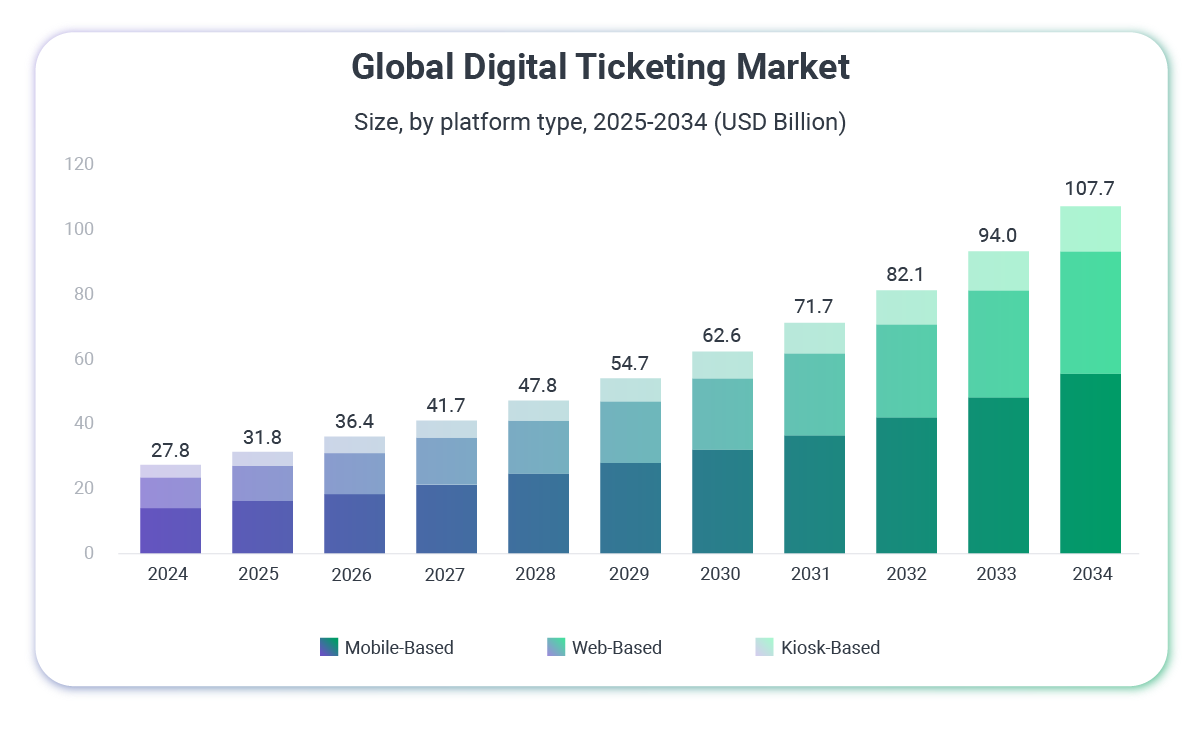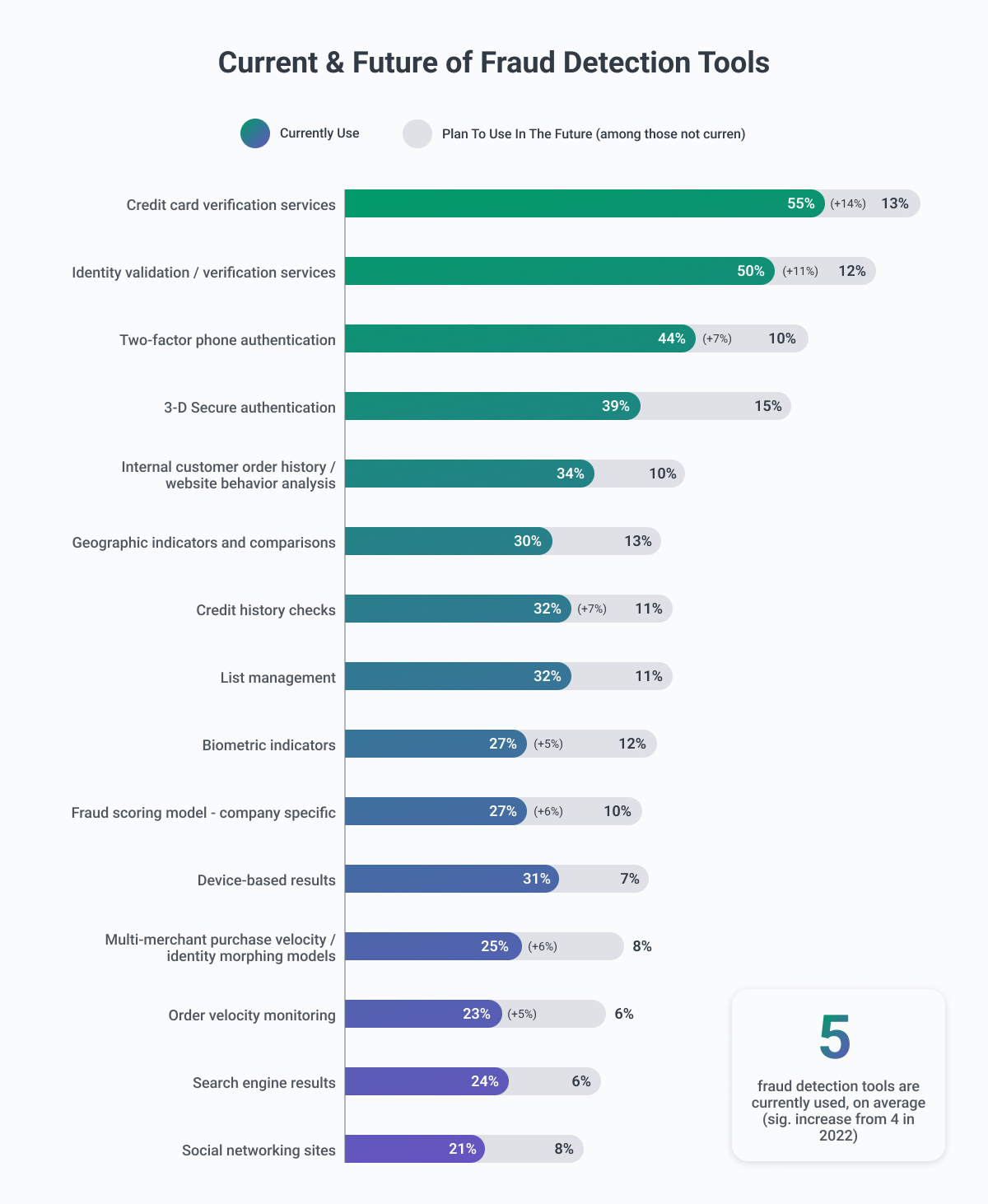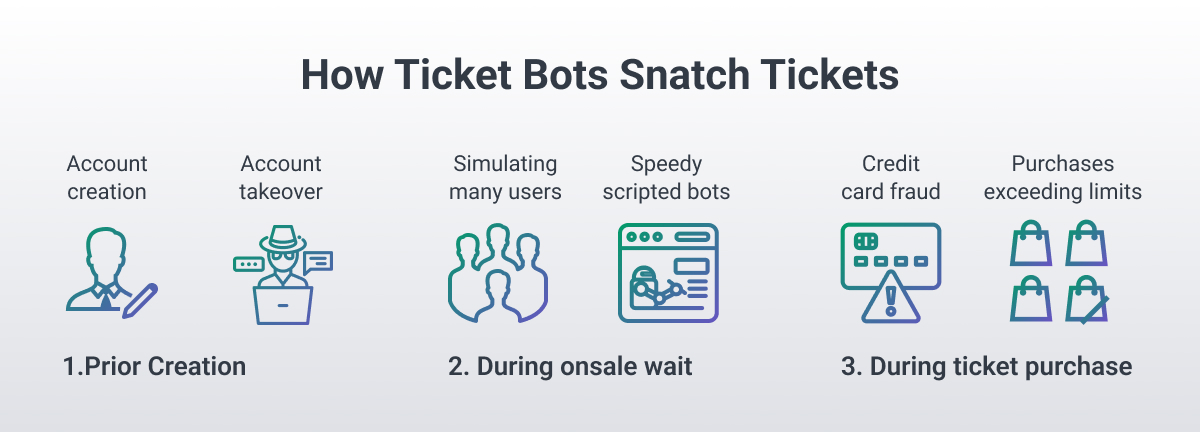In the time it takes you to read this sentence, fraudsters have likely stolen thousands of dollars from unsuspecting concert-goers. The digital revolution in ticketing has created unprecedented convenience for fans and equally unprecedented opportunities for scammers.
With UK fans alone losing over £5m (~$6.75B USD) in scams in 2025 and American consumers being scammed of over $12.5 billion in 2024, fraudulent schemes are becoming increasingly sophisticated, and the battle for legitimate event access has never been more critical.
The Digital Era Brings Advanced Fraud
The event ticketing market has undergone a remarkable transformation since the advent of digital tickets and post-COVID-19, with a notable shift towards mobile ticket purchasing and the convergence of primary and secondary marketplaces.
This evolution has facilitated broader access to events but also introduced significant challenges, such as fraud, scalping, and barriers to genuine fans' access. These challenges underscore the need for innovative solutions to safeguard the integrity of digital ticketing.

The Evolution of Ticketing Fraud
Digital ticketing has revolutionized how tickets are sold and purchased, significantly impacting the landscape of event ticketing. This digital transition, while offering efficiency and convenience, has also opened up new avenues for fraudsters.
The rise of sophisticated scams, including the resale of tickets at inflated prices and the distribution of counterfeit tickets, poses a serious threat to revenue and consumer trust.

Detection Tools Ticketing Companies Use or Will Use, Source: INTIX
Combatting Ticketing Fraud: Strategies and Solutions
Digital Ticketing and Access Control
Digital ticketing platforms have revolutionized event access, leveraging dynamic QR codes and Near Field Communication (NFC) technology to combat unauthorized resales and counterfeits effectively. These digital mechanisms enable real-time ticket verification, significantly minimizing fraud risks.
Dynamic QR codes enhance security by being programmable to change with each view, preventing duplication or unauthorized sharing. NFC technology facilitates seamless, contactless entry, reducing the chances of ticket theft or loss while expediting venue entry processes.
Incorporating these technologies allows for sophisticated access control measures, including identity verification and time-based entry, ensuring tickets remain in the hands of genuine purchasers. This approach not only deters fraud but also streamlines the attendee experience, demonstrating the pivotal role of digital ticketing in modernizing and securing event access.
Blockchain & NFT Tickets
Blockchain technology and Non-Fungible Tokens (NFTs) have been positioned as innovative solutions to counter ticketing fraud, leveraging the blockchain's immutable ledger for secure and verifiable transactions. NFTs, as unique digital assets on the blockchain, promise to revolutionize ticketing by authenticating each ticket's uniqueness and secure ownership, potentially curtailing counterfeit tickets and unauthorized resales through transparent ownership history.
However, the practical application of blockchain and NFTs in ticketing faces obstacles, including the technology's complexity and the challenge of broad adoption among event organizers and attendees unfamiliar with blockchain concepts. These challenges highlight the need for a balance between innovative security measures and user accessibility.
Despite the hurdles, the transformative potential of blockchain and NFTs in enhancing ticketing security and transparency is significant. They offer a forward-looking approach to fraud prevention, yet, for many aspects of fraud – particularly those related to immediate ticketing concerns – digital tickets offer a more accessible and equally effective solution.

Predictive Analytics and Machine Learning
The advent of predictive analytics, machine learning, and artificial intelligence has significantly bolstered the ability to combat ticketing fraud. We’ve seen from the fintech industry that these technologies excel at sifting through vast amounts of data to identify patterns, anomalies, and potentially fraudulent activities before they impact the market.
These technologies' ability to analyze vast datasets and identify patterns is further enhanced by incorporating graph technology. Graph technology can map and analyze complex relationships between data points, offering unparalleled insights into fraudulent networks and behaviors. Here are some specific ways graph technology contributes to fraud prevention:
- Complex Relationship Mapping: Graph technology excels at visualizing the connections between different entities, such as buyers, sellers, and tickets. This allows for the detection of sophisticated fraud schemes that might not be apparent through traditional data analysis methods.
- Real-time Fraud Detection: By analyzing the relationships and patterns in real time, graph technology can help identify and flag suspicious activities as they happen, enabling quicker responses to potential threats.
- Scalability: Graph databases can handle large, complex datasets with millions of connections without compromising performance, making them ideal for monitoring ticketing transactions across large events and platforms.
- Anomaly Detection: Graph technology can identify unusual patterns and behaviors that deviate from the norm, such as abnormal ticket purchase rates or connections between known fraudsters and new accounts.
Utilizing predictive analytics and machine learning provides a proactive approach that not only enhances the security of ticket transactions but also helps maintain the integrity of the ticketing ecosystem, ensuring that genuine fans have access to tickets at fair prices.
Enhanced Security Measures
In the ongoing battle against ticketing fraud, incorporating advanced security measures such as facial recognition, voice authentication, and biometric verification has proven to be highly effective. These technologies add layers of security by tying the ticket purchase to the unique physical characteristics of the purchaser.
Facial recognition technology can ensure that only the ticket purchaser gains entry to an event, significantly reducing the risk of ticket scalping and unauthorized entry. Similarly, voice authentication and biometric verification can safeguard against account takeovers and unauthorized transactions, making it much harder for fraudsters to exploit digital ticketing platforms.
.jpg)
Addressing the Resale Market and Scalping
The challenges posed by ticket bots and the secondary market are significant, with bots often buying up tickets faster than genuine fans. Implementing transparent pricing and fair access strategies, along with technological solutions to detect and block bots, can help mitigate these issues, ensuring that tickets reach real fans at fair prices.

Strategies to consider implementing to deter bots and scalping include:
- Implement CAPTCHA Mechanisms: Integrate CAPTCHA verification during the ticket purchase process to distinguish between human buyers and automated bots.
- Limit Ticket Purchases: Set a maximum number of tickets that can be purchased in a single transaction to prevent bulk buying by scalpers.
- Use Fan Identification: Require buyers to register with personal information, and use this data to validate purchases, ensuring tickets are sold to genuine fans.
- Monitor and Analyze Purchase Patterns: Employ data analytics to identify and investigate suspicious buying patterns indicative of bot activity.
- Collaborate with Resale Platforms: Work with reputable secondary market platforms to ensure that resold tickets are priced fairly and scalpers are discouraged.
- Dynamic Pricing Models: Adjust ticket prices based on real-time demand to reduce the incentive for scalpers to buy and resell tickets at inflated prices.
- Delayed Ticket Release: Hold back a portion of tickets to be released closer to the event date, undermining scalpers' ability to corner the market.
- Blockchain Verification: Utilize blockchain technology to create a transparent and immutable record of ticket transactions, making it easier to trace and invalidate unauthorized resales.
Preventing Payment Fraud and Chargebacks
Payment fraud and chargebacks are prevalent in the digital ticketing space. Strategies to combat these include the use of AVS, CSC verification, 3-D Secure technology, and offering ticket insurance. These measures, coupled with clear policies and customer education, can significantly reduce the risk of friendly fraud and chargebacks.
.jpg)
Implementing a Multi-Layered Fraud Prevention Strategy: Use Cases
The battle against ticketing fraud is multifaceted, requiring not just the integration of advanced technology but also strategic policy enforcement and comprehensive customer education. Here are several examples where technology solutions have played a crucial role in enhancing security and trust within digital ticketing systems:
- Seamless Ticket Validation for Ticombo: A cross-platform ticket validation application was developed to enhance event access control. This solution aimed to reduce system vulnerabilities through seamless ticket scanning and robust functionality across both iOS and Android platforms, tackling fraudulent ticket use and unauthorized event access head-on.
- Transaction Security Enhancement: For a project involving Theatermania, the integration with secure MagTek readers was implemented to fortify the ticket-purchasing process against financial fraud. This move was designed to ensure greater transaction security by encrypting card data, offering a protective barrier against payment fraud.
- Legacy System Modernization: The modernization of legacy ticket and cash management systems for IMS introduced automated reporting features and in-app backup functionalities. This transformation streamlined operations and safeguarded client information, thereby mitigating the risk of data breaches and fraud.
- Secure Integration for SecuTix: The development of a third-party plugin enabled direct connections with external ticketing software, allowing for the secure processing of a larger volume of events and ticket sales. This capability was critical in ensuring the accuracy of event details, which is essential for preventing fraudulent listings.
- Optimizing Cloud Systems for Scalability: A cloud system optimization project aimed at enabling the sale of 20,000 tickets in five minutes highlighted the need for scalable and secure systems. Such infrastructure is vital for minimizing opportunities for fraudulent activities during peak sales periods by ensuring system integrity and performance.
These examples underscore the pivotal role of innovative solutions in combating ticketing fraud, showcasing how strategic technology implementations can significantly enhance the security and efficiency of the ticketing ecosystem. If your organization is navigating the complexities of ticketing fraud or looking to elevate your ticketing system with the latest technology solutions, Softjourn is here to help.
With our deep expertise across digital ticketing, data management, blockchain, and more, we're ready to assist you in creating a more secure, scalable, and user-friendly ticketing experience. Let's work together to turn your ticketing challenges into opportunities for innovation and growth.

Adapt to the Digital Era
The fight against ticketing fraud in the digital era requires continuous innovation and collaboration among all stakeholders. By prioritizing security, transparency, and fairness, the ticketing industry can adapt to digital advancements and protect both event organizers and fans from the evolving threats of fraud. This collective effort will ensure a secure, equitable, and enjoyable ticketing experience for all.
















